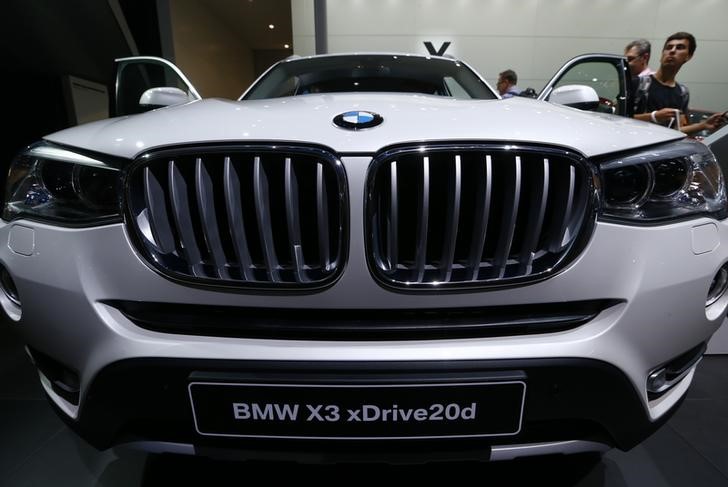How are energy investors positioned?
Investing.com -- Analysts at UBS in a note dated Tuesday have made shifts in its European automotive coverage, downgrading Mercedes-Benz (OTC:MBGAF) Group AG to "neutral" while upgrading BMW (ETR:BMWG) to "buy."
Analysts at UBS now view BMW as the top pick in the European Original Equipment Manufacturer sector, citing its stronger outlook for cash returns, stabilizing margins, and an undervalued stock relative to its peers.
UBS’s downgrade of Mercedes-Benz comes as analysts revise their expectations for the company’s near-term performance, with a lowered target price of €55, down from €72.
The downgrade reflects significant challenges in the automotive giant's core business, particularly in China, where a slowing economy and weaker consumer demand are exerting pressure.
Additionally, UBS expects that the introduction of Mercedes-Benz's new vehicle platforms, such as the Modular Architecture and the MB.EA electric platforms, will lead to margin dilution during their initial rollouts.
These platforms are crucial to the company's future, but the initial years will require substantial investments in technology and infrastructure while the vehicles ramp up production.
UBS anticipates a tough 2025 for Mercedes-Benz, forecasting a decline in earnings per share of 10-12%.
Analysts expect the company’s car division to face continued margin pressure, with the EBIT margin in 2025 and 2026 likely falling between 6-8%, which they believe is not yet fully priced in by the market.
This, along with a challenging macroeconomic environment and continued regulatory pressures in Europe regarding CO2 emissions, leaves little room for substantial earnings growth in the near term.
The company’s free cash flow is also expected to drop significantly, from over €8.5 billion annually to around €6 billion, further pressuring the stock's performance.
Despite this, UBS sees Mercedes-Benz’s ongoing capital allocation strategy—particularly share buybacks—as providing some support to its stock price, though it acknowledges that more clarity on earnings will be needed before investor confidence returns.
In contrast, UBS analysts have upgraded BMW to a "buy" rating, with a new price target of €83, up from €75.
BMW stands out among its competitors in several key areas, most notably in its ability to generate consistent free cash flow and deliver strong cash returns to shareholders.
UBS expects BMW’s auto EBIT margin to stabilize in 2025 at 6-8%, driven by slightly higher revenues, with the lower end of the range likely due to a continued decline in the Chinese market.
However, UBS also sees substantial upside in BMW's cash return potential. The company’s generous shareholder returns policy, including dividends and share buybacks, could lead to a sustainable yield of about 15% in the coming years, positioning it as one of the most attractive capital return stories in the sector.
A key driver of BMW’s future growth is its "Neue Klasse" vehicle platform, set to launch in late 2025.
Although the initial impact on the company’s margins will be modest due to the launch costs, UBS expects the Neue Klasse to drive top-line and EBIT growth starting in 2026.
This, combined with a more efficient capital allocation strategy, places BMW in a strong position to navigate the industry's challenges.
UBS analysts also flag BMW’s superior positioning relative to its peers when it comes to compliance with European CO2 regulations, where the company does not need to rely heavily on margin-dilutive battery electric vehicle sales.
Furthermore, BMW benefits from a more favorable hedge against potential U.S. import tariffs on European-made cars, compared to its German counterparts.
While risks remain, particularly in the Chinese market, the company's relatively low fixed cost base in its joint ventures there offers a degree of protection against margin erosion from lower volumes.
